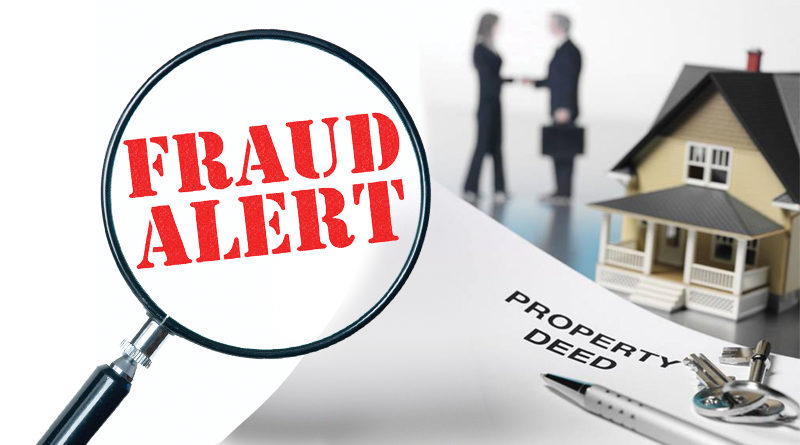Real estate fraud is a crime that consists of deceiving a person interested in buying a house or real estate, so that they invest their money in misleading offers or make deposits without any type of guarantee.
In many cases, you ca n avoid problems by contacting a good real estate company, however, your best defense is prevention. That’s why, below, we’ll talk about these frauds in detail so you can be vigilant and not become a victim.

What Are the Most Common Types of Real Estate Fraud?
Here are some of the most common home sale scams:
- Requests for advances without collateral
- Request for payment without a sales contract
- The seller is not the owner of the property
- Identity fraud
- Transaction of properties that are not for sale
- Multiple sales of the same property
When investing in a home, it is very important to be aware of these crimes. Consider that fraud is not only a bad experience that causes you to lose money, but it can even become a potentially risky situation for your physical integrity.
Remember that this is a transaction that moves large amounts of money and can attract the attention of people with bad intentions. Below we explain in detail how criminals operate so you can be aware of the red flags.
Requests for Advances Without Collateral
Verbal transactions or requests for advances without collateral, under the guise of “taking” property, are a common fraud. These requests can come from individuals (whether or not they are the rightful owners of the property) or from fictitious real estate companies.
In this type of scam, criminals may ask the person for the value of the down payment (an amount that can exceed 10% of the total value of the house) and usually occurs when negotiations are conducted online, without the buyer visiting the property.
Request for Payment Without a Sales Contract
The sales contract is the best legal guarantee that the entire procurement process is conducted in a transparent manner. As in the previous case, a request for payment without a stipulated contract is a common type of fraud.
Sales contracts cannot be falsified, as they must be presented before a notary with the prior review and approval of lawyers who certify that all clauses are in order.
It is necessary to ask for this contract before making any transaction so that the process goes correctly. If the seller makes excuses or refuses to sign, you are most likely dealing with a scam.
The Seller Is Not the Owner of the Property
This type of real estate fraud involves a scammer gaining access to a property and attempting to sell it without having the legal right to do so. This certainly voids any transaction, even if you have made all payments.
This scam can happen in two ways:
1. That the seller’s name does not match the name accredited as the owner on the title of the home.
2. The seller presents false identification and pretends to be the real owner.
Impersonation
Impersonation is related to the previous point and occurs when a person impersonates the owner of a property using falsified documents. You should be very careful with this type of scam, as it also occurs through fraudulent real estate companies.
In these cases, the scammers impersonate the web identity of a real estate agency. You need to be meticulous in the details of real estate pages, think that a criminal can steal the photos published on official pages and social networks to make an identical design and thus deceive buyers.
Offering Properties That Are Not for Sale
Another of the most common home sales scams is fake internet ads for properties that are not for sale. The hook is usually an offer for cheap properties in residential neighborhoods or classified areas of the city.
In these cases, the scammers may ask for a deposit of money up front while arranging a pretend appointment with the buyer to view the property. After receiving payment, they never show up and disappear.
Multiple Sales of the Same Property
In this case, the sale of a property is completed, but this type of fraud involves completing the sale of the property multiple times and invoicing the down payment to different buyers.
While the application for the purchase of the house is allowed in the registry, the scammers can take advantage of this to “sell” the property several times during this period. Therefore, the first person to buy is the only one who gets the legal right to the property.
There you go! You now know more on how to avoid real estate fraud. Want to continue learning on this matter and understand how you can spot real estate fraud? Come back to check the second part of our article.

